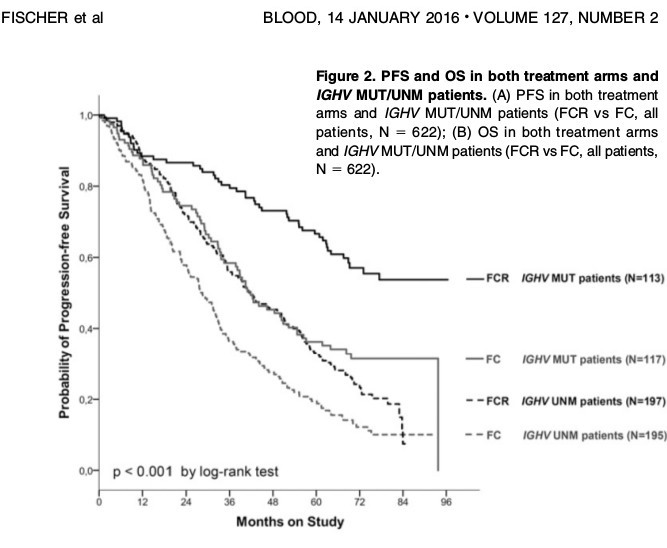Anyone interested in the pros and cons of chemotherapy vs non-chemotherapy treatment should watch this 10 minute video by Dr Susan O’Brien, MD, University of California Irvine Medical Center, where 'she discusses frontline treatment options for patients with newly diagnosed chronic lymphocytic leukemia (CLL). In order to provide personalized therapy for patients, certain factors may determine whether chemotherapy or ibrutinib would be the more appropriate option.
Dr. O’Brien also discusses novel agents approved as second-line therapies for CLL and side effect profiles physicians should consider when recommending treatment.'
cancernetwork.com/videos-he...
The key 'certain factor' is your CLL IGHV mutational status. As Dr O'Brien notes from around the 2 minute mark, there are three publications (from the USA, Germany and Italy) within the last year showing remarkably consistent long term survival for about 60% of those with CLL IGHV mutational status. Basically if you survive for more than six years, long term survival can extend to at least 16 years (which is as far as FCR data goes back). Dr O'Brien estimates that this translates to around 60% of the estimated 20 to 40% of patients with mutated IGHV CLL now being treated with FCR are likely to experience long term survival on this chemoimmunotherapy - they are effectively cured!
Image above is Figure 2 from the German paper referenced by Dr O'Brien: Long-term Remissions After FCR chemoimmunotherapy In Previously Untreated Patients with CLL - CLL8 Trial, Updated Results:
bloodjournal.org/content/12...
Note how the top curve, showing the probability of progression free survival for patients with mutated IGHV flattens out after 72 months. In other words none of the ~67 patients surviving 6 years died from their CLL in the following 2 years. (Nearly 60% of the 113 FCR treated patients with IGHV works out at 67 long term survivors with indefinite remission.)
Neil
